One of the saddest things about Blue Bloods coming to an end is that it teaches life lessons without being moralistic.
Frank Reagan is a walking example of how to live your life, while Henry likes to share his wisdom with his grandchildren and great-grandchildren.
Blue Bloods‘ 14 seasons have been full of wisdom, strength, and other values that have helped me live my life better, which is one of the reasons it is my favorite show.
True Strength Comes From Living According To Your Values No Matter What
One main theme of Blue Bloods’ 14 seasons is Frank’s refusal to do anything that he doesn’t think is right.
He is like an old-time Western hero, living by his own moral code regardless of the personal consequences.
His decisions often seem like they should tank his career or at least do serious political damage.
He won’t stand next to a mayor at a press conference touting a policy he opposes and isn’t above making public statements against what he sees as egregious missteps by those above him.
Yet Frank is virtually untouchable, having survived as Commissioner under five different mayors, none of whom appreciated the obstacles he put in their paths.
That is because his integrity makes him someone others admire, and his insistence on putting what is right above what is politically expedient has made him so popular that it would be political suicide for any mayor to fire him.
Disagreement Doesn’t Have To Mean Division
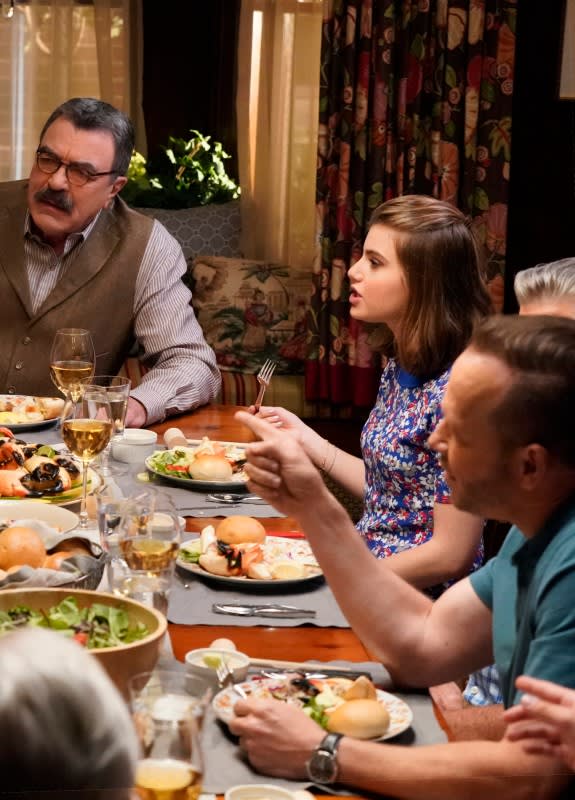
One of the things I love about Blue Bloods is that it unites a divided country by focusing on the characters and not on whether they all hold the “right” opinions.
The Reagan family dinners, as well as the way hot-button issues are handled on the show, model a future in which people who have different points of view are still loved just the same, even if they disagree passionately on issues.
During the first 10 seasons, Nicky held completely opposite views from everybody else in the Reagan family. Frank disagreed with her views and was not afraid to criticize them, but that had nothing to do with how he felt about Nicky or about their relationship.
One of Frank’s golden rules is that when the family comes to the table, they need to remember they are family FIRST. No matter how much they fight or disagree, love is never conditional on agreement.
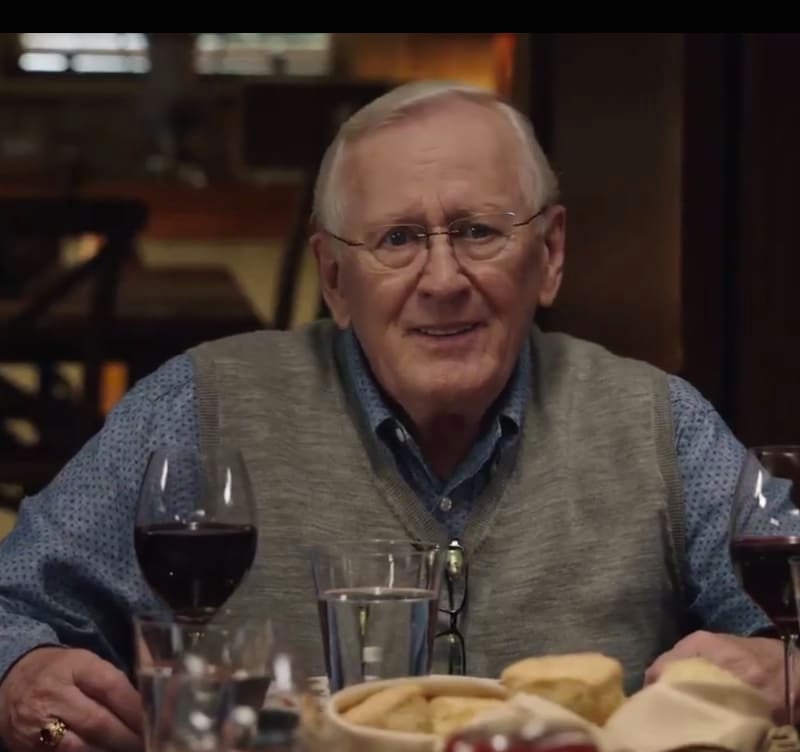
This same grace extended to Frank’s friends.
No matter how many times he got irritated with Archbishop Keanes, he would always remember that they were friends for a reason.
Frank will never discard a relationship over disagreements, which is rare in today’s society.
Make Family Time A Priority
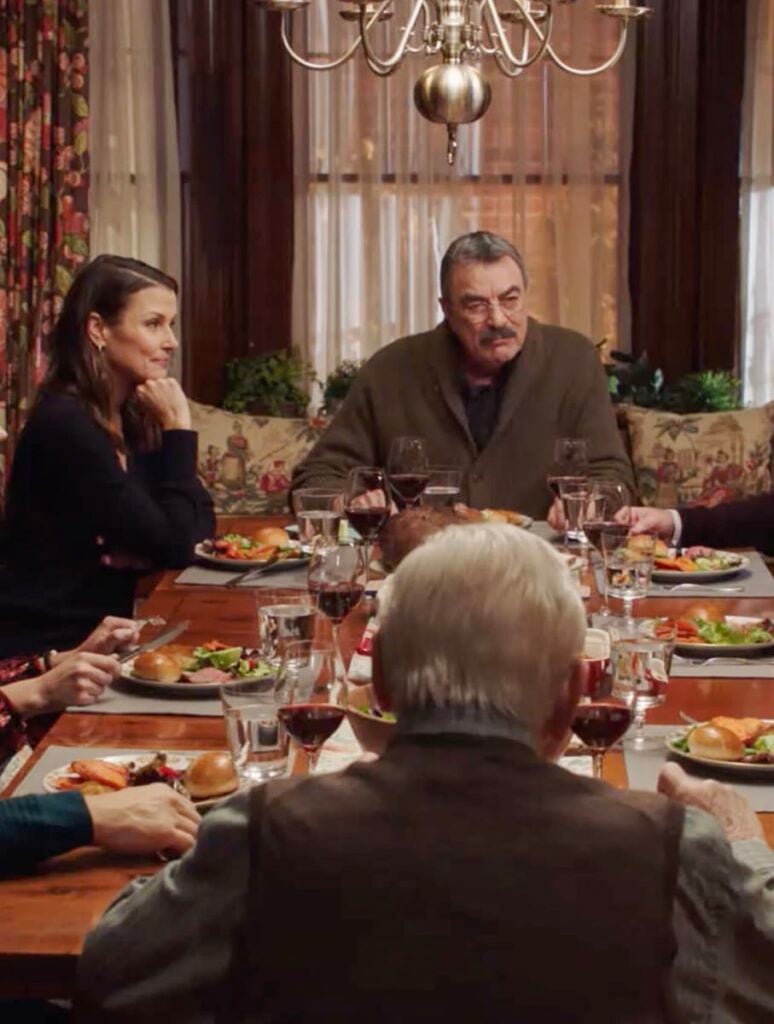
Blue Bloods’ 14 seasons have included a family dinner scene in every episode.
On rare occasions, the dinner didn’t take place at home, but there was no episode that cut it out altogether because it was too important to the characters and to the series’ message about the importance of family.
Those dinner scenes are the most popular part of the show, and they also help teach the life lesson about making family a priority in our busy lives.
Frank expected everyone to come to dinner unless they had a good reason to skip it, like being hospitalized. (Linda got a pass when she was shot, though even then, Frank brought the dinner table to her and Danny through a phone call and a catered meal.)
He also had a no-phones-at-the-table rule. Family time was about family, not about sitting together while lost in social media or texts with someone unrelated.
This demonstrates HOW to make family a priority. Quality over quantity, and making sure that the family gets together at least once a week, without fail.
Most Social Problems Are Too Complex To Fit In A Box
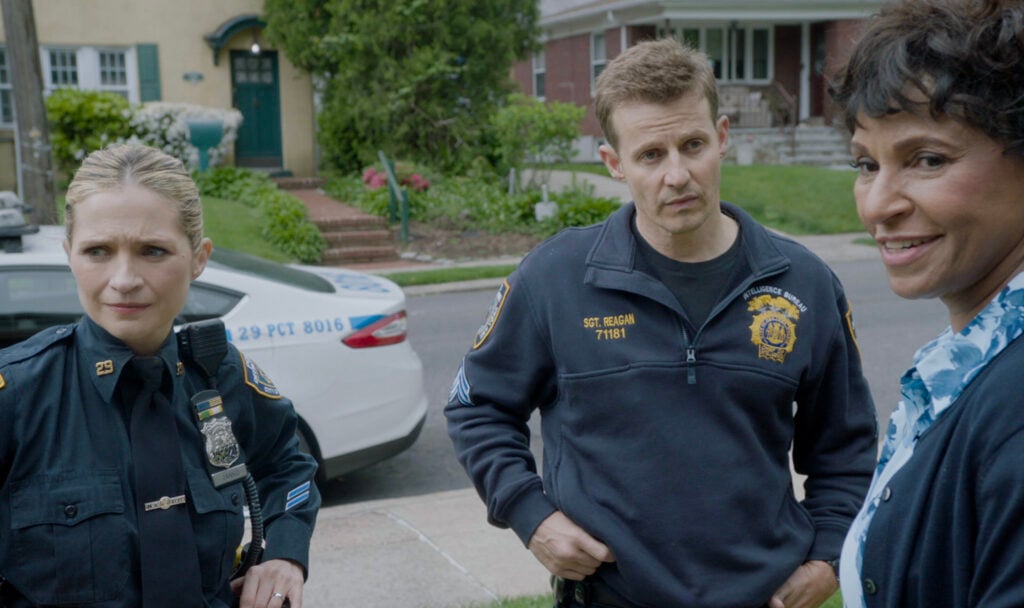
Some advocates for police reform call Blue Bloods “copaganda,” meaning that it is propaganda meant to make people uncritically accept the police as saviors of society.
That belief is a big part of the problem in society today. It’s too easy to take a problem such as racism in policing and reduce it to “cops are bad; every person who has a negative encounter with the police is an innocent victim.”
Blue Bloods’ 14 seasons have demonstrated how dangerous that type of oversimplified thinking is.
The show’s mission has never been to turn police officers into objects of worship but to show the NYPD fairly, both the good and the bad.
By showing cops as human — including some who are so corrupt they become murderers, like Sonny Malevsky — Blue Bloods teaches the lesson that it doesn’t help solve problems to look at things in such stark terms.
It’s a principle that can be generalized to many other issues in life. I struggle with that sometimes because my autistic brain loves all-or-nothing thinking, but I try to make a conscious effort to follow what I’ve learned from Blue Bloods.
Grief Works In Surprising Ways And You Need To Stay Self-Aware
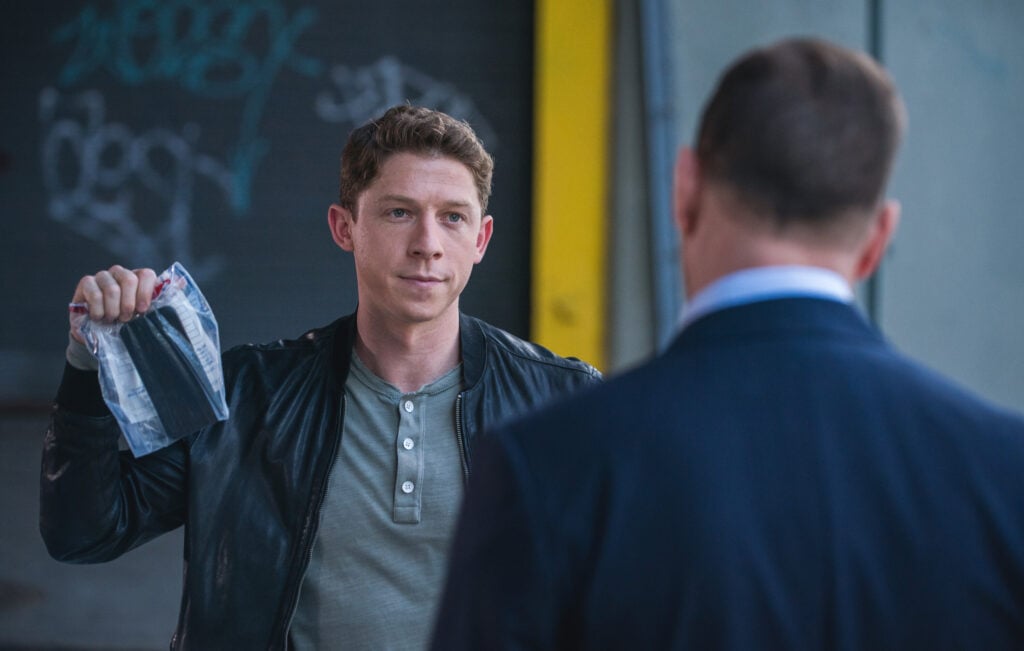
Grief has, unfortunately, been central to the Reagans’ existence for Blue Bloods’ 14 seasons.
Joe Reagan was already dead before the series began, and the first season involved the investigation into what happened to him.
When Sonny Malevsky admitted he killed Joe before ending his own life, the Reagans had their answers, but that didn’t make them feel any better, demonstrating that grief is not something that can be solved by understanding why it happened.
Throughout the next 14 years, the Reagans have faced their grief courageously. They’ve gone on as best as they can, though Joe’s death will always make them feel like something is missing.
Blue Bloods Season 14 Episode 14 taught us something else about grief, too: anything can trigger it, but it’s how you handle those triggers that matters.
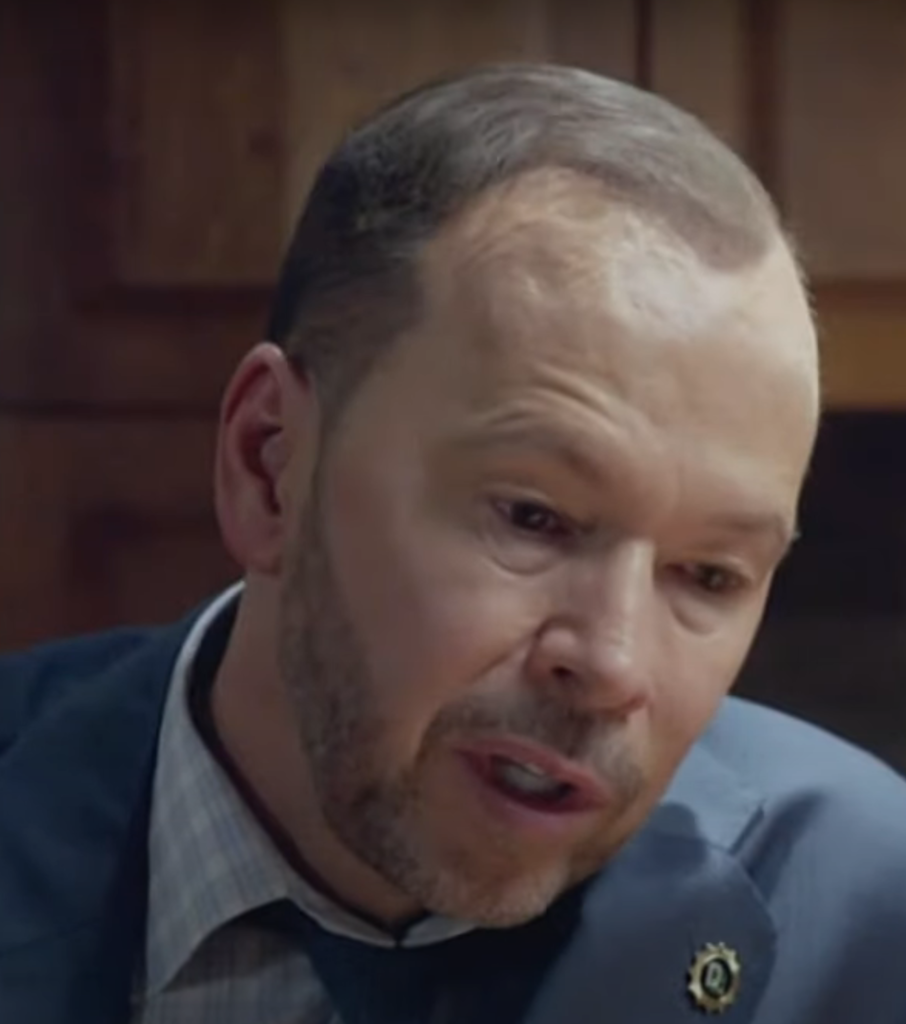
Frank and Henry didn’t handle it well when The Irish Society rescinded Danny’s award.
Henry was glad because Joe had gotten the same award right before he died, while Frank hoped that the family being there to see Danny get it would make up for Joe’s being awarded posthumously.
Surprisingly, the best life lesson in this one came from Danny, who decided to turn the award down because he wanted to honor Joe’s memory instead.
The family met at Joe’s favorite restaurant, which they hadn’t visited since his death, and toasted him, which showed that the best way to deal with grief is to honor the memory of the person that you lost and that it’s important, not to stop doing things that remind you of them.
Cherish Every Day You’ve Been Given
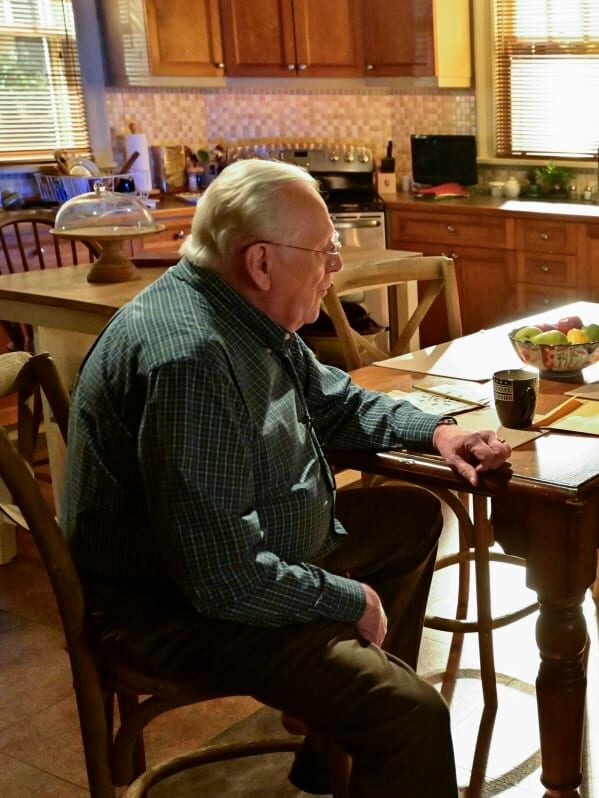
Over Blue Bloods’ 14 seasons, there have been several episodes dealing with Henry’s potential health problems.
(Hopefully, he makes it to the finale! It would be terrible if he died before the series ended.)
Henry has said on several occasions that he’s grateful for waking up every morning.
He knows that he’s in his 80s and that his days are numbered, but instead of letting that be a source of sorrow, he tries to stay grateful for the time he has left.
You don’t have to be in your 80s to adopt his philosophy. Being grateful to be alive also means making the most of each day, which is easier said than done.
People’s Negative Opinions Of You Are Really About Themselves
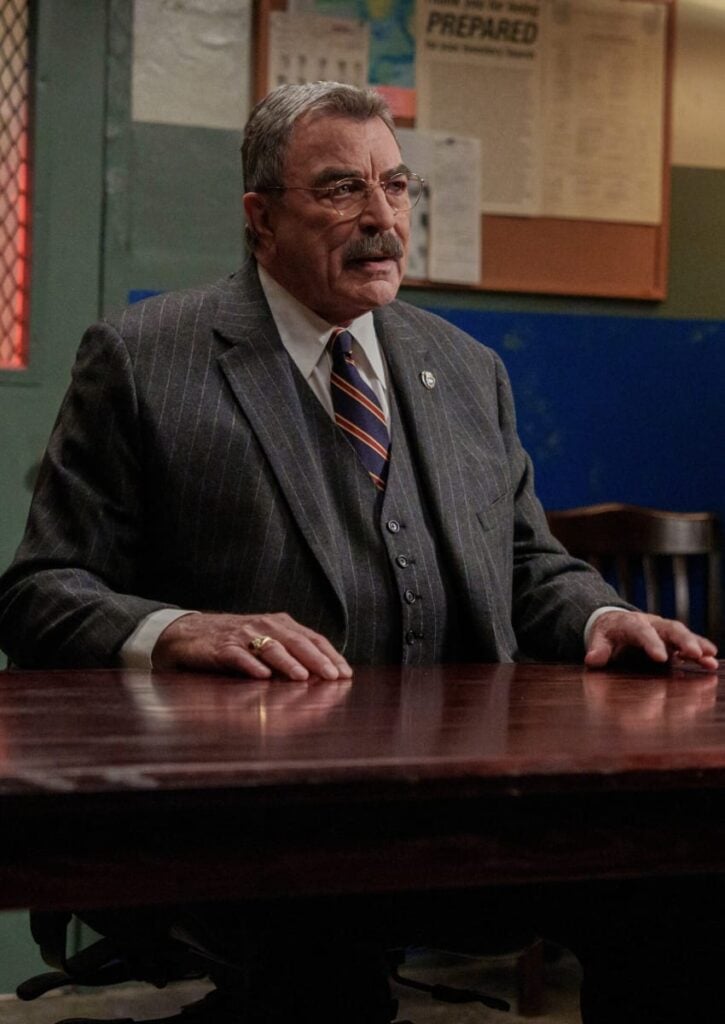
This is one that I’ve picked up from some recent episodes of Blue Bloods.
Two separate people in recent weeks have accused Frank of planning to blackmail them, which is a laughable charge.
Frank has too much integrity to ever do anything like that, yet both Mayor Chase and Grace Edwards thought that’s what he was doing.
Grace’s accusation was the most ridiculous.
She assumed that when he told her about other cops who got the Irish Society Award despite less than stellar disciplinary records, his point was that he would make that public if she didn’t do what he wanted.
Blackmail just isn’t something Frank would do, so it never occurred to him that his statistics, which he gathered to show Grace that she was a hypocrite, could come across as a threat.
The only reason Grace could have thought that was that she would do something like that. Either that or she’d had bad experiences with blackmailers that had left her traumatized.
Either way, her accusations said more about her than about him, and we should all remember that when dealing with others’ opinions of us.
Value Results Over Optics
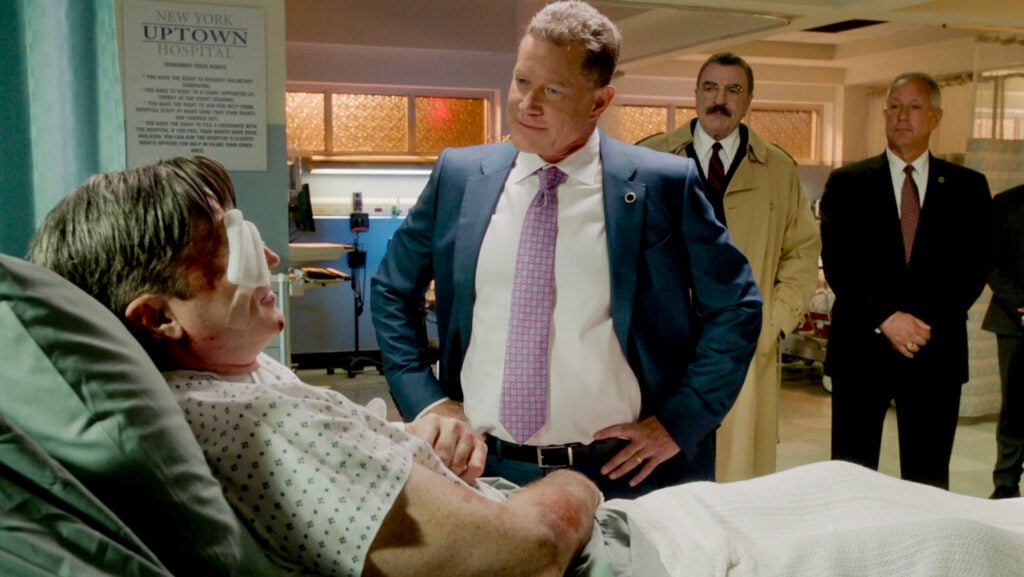
Many of Frank’s disagreements with the mayor or the Dream Team involve other people who care too much about optics.
As he said on Blue Bloods Season 14 Episode 16, “Optics don’t put bad guys behind bars.”
Frank doesn’t care about how things look. Throughout Blue Bloods’ 14 seasons, his priority has been policies that get the results he wants.
This is partially a matter of integrity. Policies that make it look like the police department is doing something don’t benefit anyone, especially if they go against department values.
It’s also a good way to approach decision-making. How something looks should not be a high priority; decisions can and should be made based on what’s best and what will be likely to achieve what you’re trying to achieve.
The Importance of Public Service
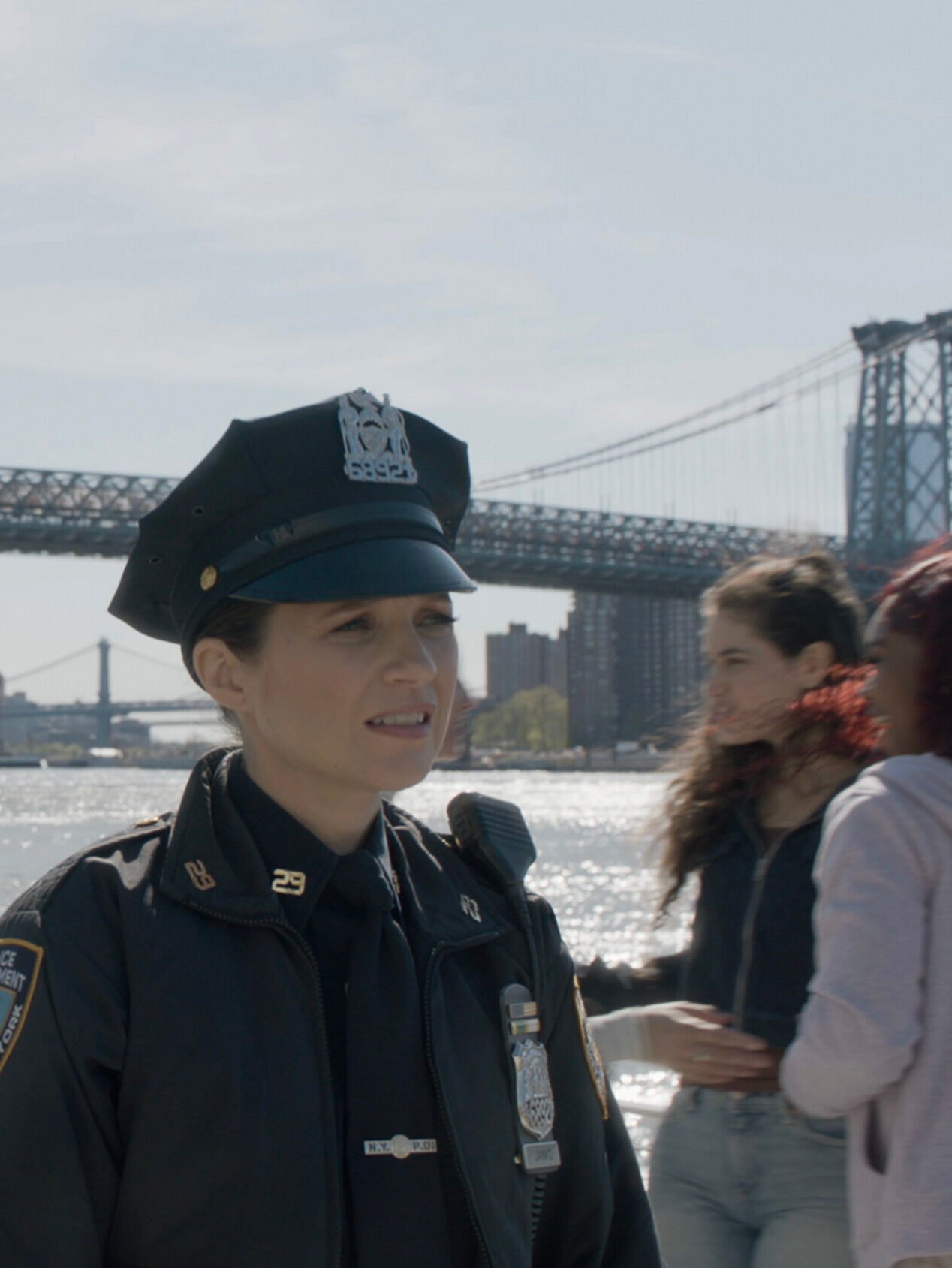
Police work is more than a job for the Reagans. It’s a calling.
They became cops (and, in Erin’s case, a lawyer) for the right reasons. They believe in the Biblical commandment to “Love your neighbor as yourself,” and they do that by being excellent public servants who do their best to help people.
No line in Blue Bloods’ 14 seasons has given me more chills than Frank’s admonition to Mayor Chase during Blue Bloods Season 14 Episode 13 to “serve the people of this city, not your egos.”
That sums up everything Frank stands for, and it’s an important life lesson that has gotten lost in all the fighting in this bitterly divided country.
Politicians are not the only ones who should strive to put their egos aside (even though many could stand to learn that lesson). We all should regularly ask ourselves if we’re doing enough to help others or if we’re just feeding our egos.
Make Amends When You Screw Up Even If It’s Hard
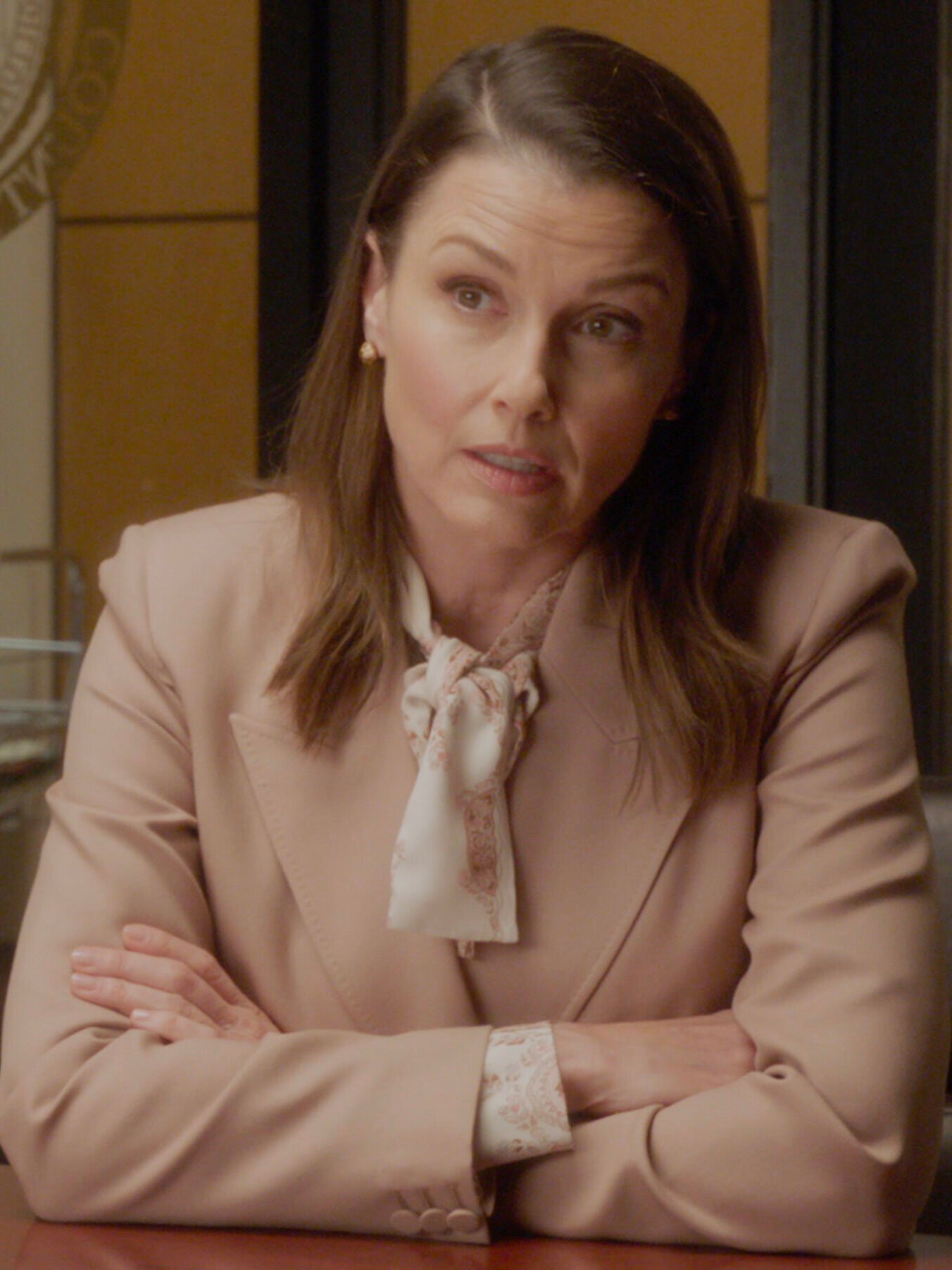
This is one that Erin Reagan epitomizes.
There have been several episodes over Blue Bloods’ 14 seasons where Erin comes to the painful realization that she has worked to put an innocent person in jail.
Every time that happens, Erin does everything she can to make it right.
She reopens the case and fights for justice, even if it’ll hurt her career or antagonize her boss.
Hopefully, our mistakes aren’t costing people their freedom, but it’s still important to take ownership of our errors and do what we can to make amends.
Communicate Honestly And Directly With The People You Love
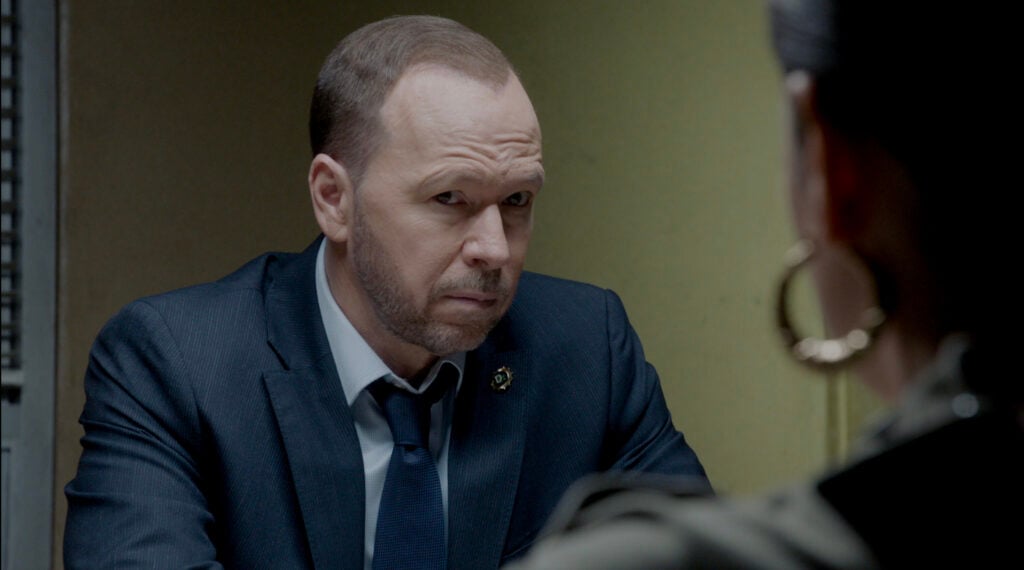
The Reagans are people who aren’t afraid to ask for what they want, at least not most of the time.
Danny was, rightfully, aggravated with his family during the Irish Society award incident because everyone else got together and discussed what to do about his award being rescinded without talking to him.
The family’s intentions were good.
They figured since Danny didn’t know he was up for the award in the first place, they could spare him pain by not mentioning it to him.
However, when they finally brought it up, it backfired. He felt the entire family was gossiping about him and didn’t appreciate it.
That was a strong lesson in the value of open, honest communication with others, especially people you love.
Keeping secrets or playing games doesn’t work very well and only ends up hurting people’s feelings, regardless of your intentions.
Resilience Comes From Facing Problems Head-On
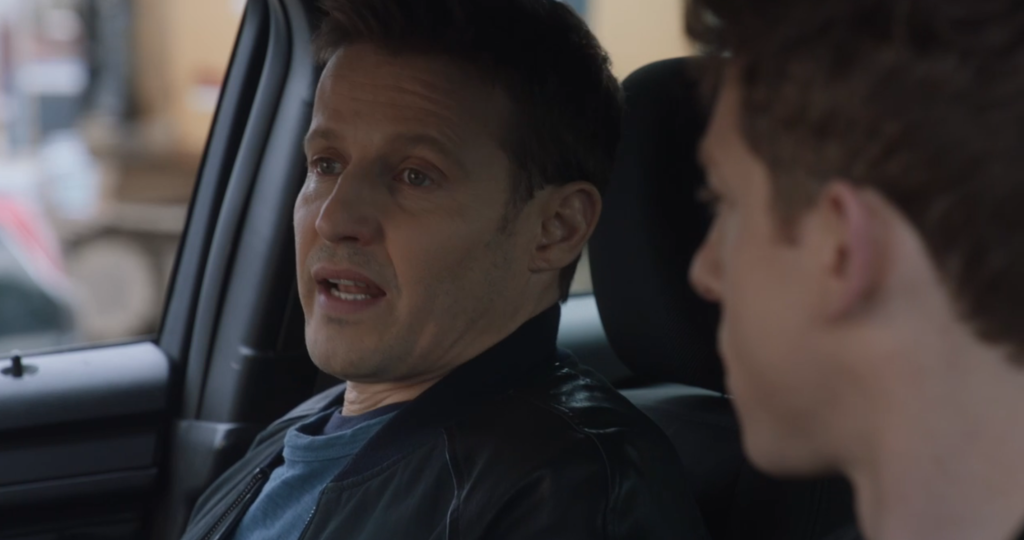
Resilience, or the ability to bounce back from setbacks, is something I strongly associate with the Reagans.
Even though some other characters think the Reagans are an American dynasty that can’t be touched, nothing could be further from the truth.
During Blue Bloods’ 14 seasons, there have been many times when the Reagans were judged more harshly because of who Frank is.
They never let that, or other setbacks, get to them. That’s because they’re used to facing challenges head-on, which gives them the confidence to know they can overcome any obstacle in their paths.
It’s Important To Learn All Sides Of An Issue Before Judging
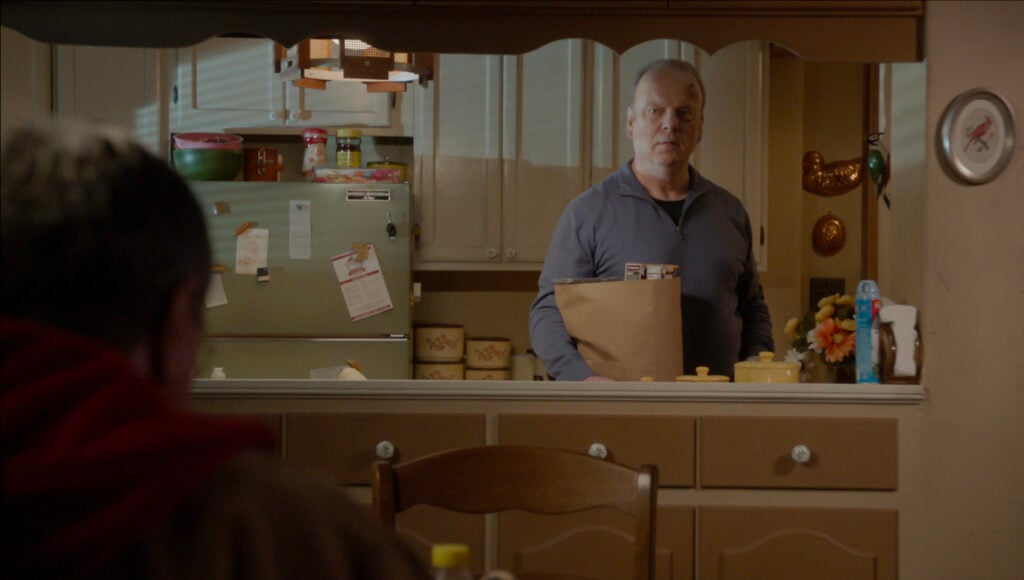
If there’s one constant throughout Blue Bloods’ 14 seasons, it’s that nothing is ever exactly how it seems.
Sid’s breaking the residency rule on Blue Bloods Season 14 Episode 15 was only one example. Although he was in violation of the policy, he did it because his mother was dying.
In other episodes, Frank must decide whether a cop made a tragic mistake or deliberately hurt a civilian.
In every case, he must consider extenuating circumstances and the information available when a cop had to make a decision.
That’s one of the things that makes his job hard. Fairness dictates that he look at the issue from multiple perspectives to try to get to the truth before determining if a cop did anything wrong and what to do about it if they did.
Learn From Your Heroes, But Don’t Worship Them
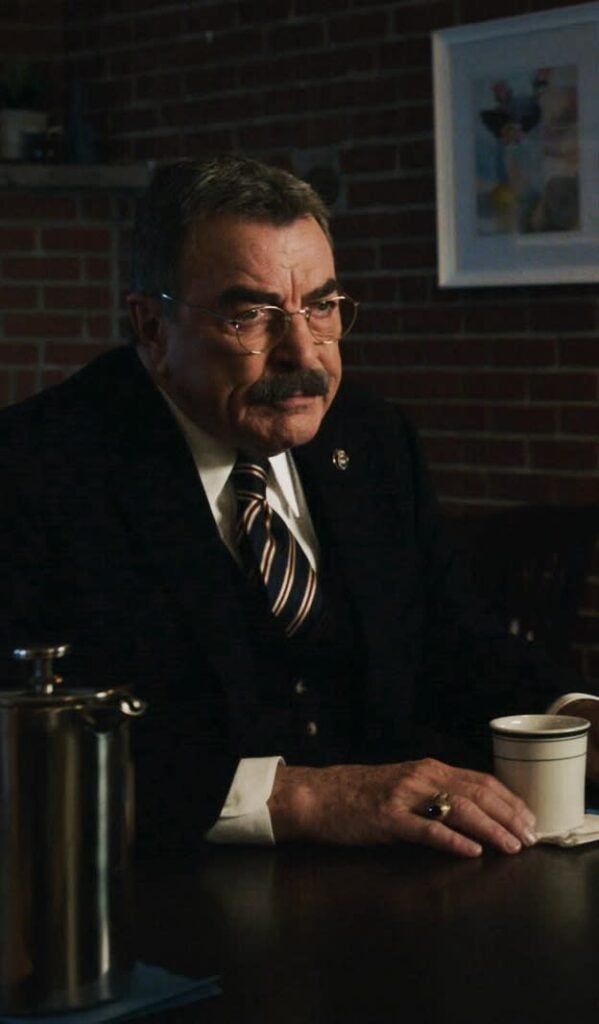
Hero worship is not a thing for the Reagans.
Frank admires Teddy Roosevelt, even fashioning his mustache after the famous President.
However, he is clear-eyed. He knows Teddy Roosevelt’s history and takes the lessons from it he can without turning him into a false god who can do no wrong.
This is equally true of people the Reagans encounter in their daily lives.
Frank has sometimes been heartbroken to learn that a cop he admired was behaving corruptly or otherwise dishonoring the badge.
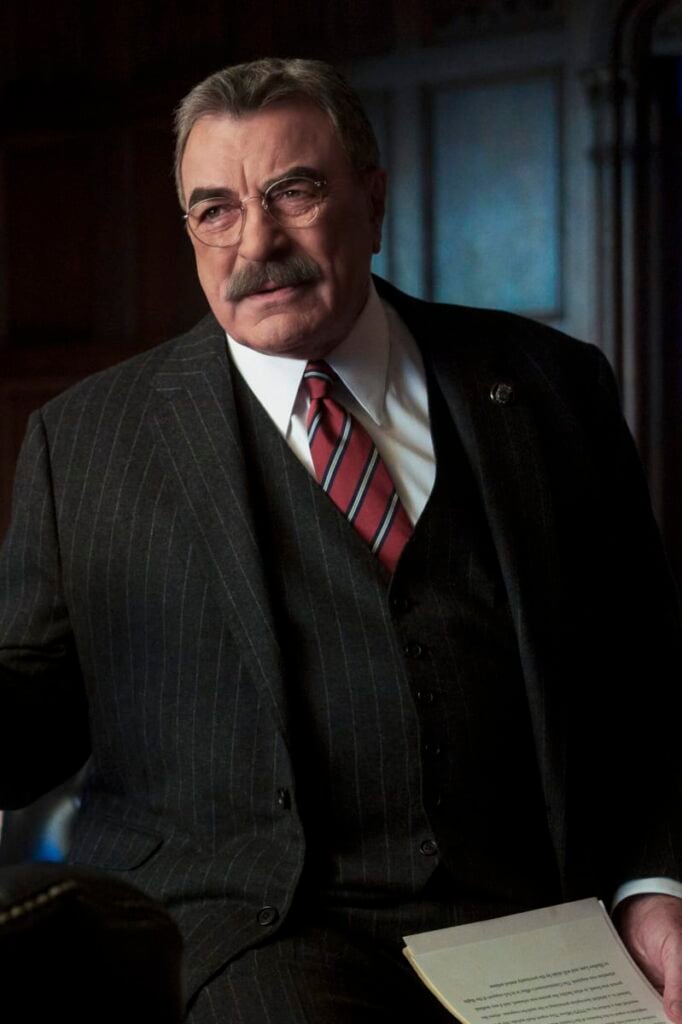
Even more importantly, every Reagan has had to face the fact that no one in their family is perfect. One of my favorite examples is the hilarious moment when Henry shares that he and his wife once went to a nudist colony.
No one wanted to hear that, and it shattered their image of Henry to learn he’d done such a thing.
Similarly, Frank’s quest for integrity can sometimes be inadvertently hurtful when he is so focused on other values that he forgets the effect his decisions will have on his family.
These stories remind us that nobody is perfect and that even great leaders like Frank should be seen as fallible human beings, not demigods to be worshipped.
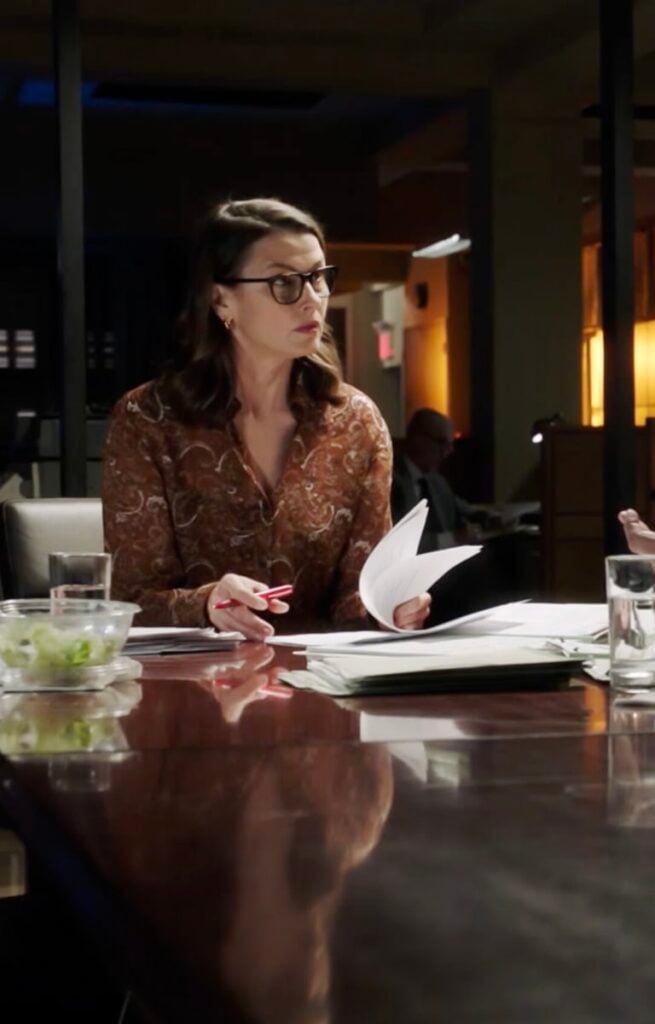
Over to you, Blue Bloods fanatics.
What have you learned about life during Blue Bloods’ 14 seasons?
Hit the comments and let us know.
Blue Bloods’ final two episodes will air on CBS on Fridays at 10/9c and on Paramount+ on Saturdays. The series finale will be broadcast on December 13, 2024.
Watch Blue Bloods Online

The post Our 14 Favorite Life Lessons We Learned From Blue Bloods’ 14 Seasons appeared first on TV Fanatic.
Source: TV Fanatic



